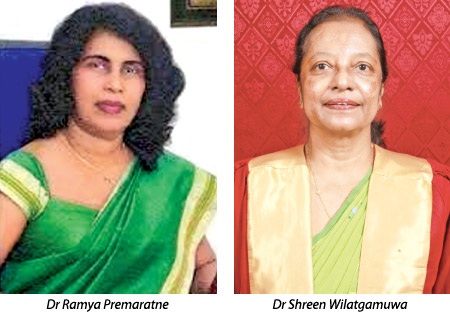
The recent moves to bring back the Family Physician or General Practitioner as an integral part of our health system, and appoint a family physician to every state hospital across the country has been hailed by the public. To most patients forced to stand in long queues in hospitals waiting for their turn to see the attending physician, spending the better part of their day in a health care facility when they could have been attending to more pressing needs of their family, some even having to take leave from work, the call by the Health Minister and the President to bring back the family oriented GP of the past, has been embraced as a step forward.
 Many who complain that overworked government doctors who man the OPD desks have little time to listen to their problems and are not in a position to establish a long sustained and enduring relationship with them and know them and their families at a personal level, believe that being able to obtain the services of a caring GP will end their problems.
Many who complain that overworked government doctors who man the OPD desks have little time to listen to their problems and are not in a position to establish a long sustained and enduring relationship with them and know them and their families at a personal level, believe that being able to obtain the services of a caring GP will end their problems.
The fact that even those in rural areas can obtain these services once the decision to have GPs in all state facilities countrywide, holds the promise of equalizing of all classes since no payment is involved. The rise in private practitioners proves the need for such services.
The Sunday Observer spoke to Family Physician, Dr Ramya Premaratne to tell us more about why and how a Family Physician plays such an important role in ensuring our well being and enabling us to enjoy the benefits of healthy living, free from non communicable diseases.
Excerpts…
Q. The role and scope of a Family Physician and Family Medicine has undergone rapid transformation in the past few decades with the emergence and rise in private practice practitioners in Sri Lanka . Do you agree?
A. Yes. There is a strong continued need for dedicated primary or family physicians who can provide patient and family centred comprehensive, coordinated and accessible health care. This is manifest in the increased number of private practitioners in the recent past.
Q. To many, especially the illiterate, the practice of medicine is still shrouded in an aura of mystery. Who is a Family Physician? Does he/she fall into the same category as a General Practitioner ( GP)?
A. Yes. Both Family physicians and General practitioners have a broad as well as deep knowledge of medicine fundamentals and understand the family dynamics and community-based logistics that impact health and diseases.
They provide the much needed primary care to patients prior to getting admitted to government healthcare facilities such as, Base Hospitals and Teaching Hospitals.
Q. What are your goals? Do you follow globally accepted principles in health care delivery?
A. The Goal is to provide exceptional care to their patients and communities.
Family physicians are universally valued for their role in providing high quality care to the people. They follow globally accepted principles in health care delivery .
Q. The average patient wants to know how and why diseases occur, how they could be prevented, what they should do when they fall ill and how they themselves can promote good health. Is your scope of functions in keeping with these needs?
A. Yes. They provide comprehensive care for patients with a broad range of medical conditions, across the spectrum of acute illnesses and chronic medical problems, as well as preventive health strategies. Educating patients on promoting good health is part and parcel of health care delivery.
Q. How does your role as Family Physician differ from the role of internal medicine doctors?
A. Family physicians provide patients personalized medical services through which they receive a full range of services within the context of a continuing relationship with the physician. Family physicians deliver acute, chronic, and preventive care, either directly or indirectly through established relationships with clinicians outside their practice.
Q. Is there such a thing as an ideal Family Physician?
A. An ideal family physician is a competent medical professional dedicated to provide comprehensive and coordinated health care services to a broad range of patients and families.
Q. What is your relationship with patients? Is it a close and continuous contact where you have records that cover all of the patient’s history and illnesses?
A. Providing care for patients regardless of age or health condition, sustaining an enduring and trusting relationship
Serve as a patient's first contact for health concerns
Navigate the health care system with patients, including specialist and hospital care coordination and follow-up
Use data and technology to prioritize and coordinate services, enhancing access, continuity, and relationships
Carefor patients in the context of their family and the ways in which the health of each family member affects the others
Understand the effects of community-level factors and social determinants of health, helping patients to identify community resources available.
Q. Is the family or close relatives of the patient included as well, especially when you are dealing with patients with possible inherited illnesses like cancer, diabetes, high blood pressure, and other non-communicable diseases?
A. When such patients consult a family physician, he/she obtains the social and family history of the patients. It is important to communicate with the patient’s family to find out the causes of the illness. Especially, when the illness is of a serious nature it is of paramount importance that the family members/ close relatives are regularly informed.
Q. Do you do house visits as GPs did in the past? Or as a hospital family physician are you hospital bound?
A. Yes we do family visits when the patient is unable to walk or is bed ridden and the family members are not able to bring him/her to a physician. However, unlike in the past these instances are very rare due to easy accessibility to healthcare facilities and transport.
Q. Is there a good data base where you can link with your patients even if they have moved away to some other district?
A. Yes. Nowadays, due to the availability of new technologies many physicians have computerized medical data of their patients.
Q. Drawing from your own experience what are some of the gaps in the health delivery system of Family Physicians?
A. Research is an important component of family medicine. However, there are no facilities to engage in research in this area. Also, there are around 40,000 quacks who practice medicine in the country. Due to the ignorance of the public and the apathy of the authorities no action has been taken to arrest this situation. Therefore, the general public is misled by these unqualified practitioners which is rather unfortunate.
Q.The Health Minister and the President have committed themselves to revive the Family Doctor concept and promote it islandwide to make Sri Lanka a disease free nation by 2030. Your comments?
A. Yes, that is the government's vision for the next 12 years.
Q. Have you a message for the public on the role of the Family Physician?
A. The public should identify the qualified family Physician, and they should not go to quacks for treatment. They should know to distinguish qualified practitioners from quacks. Only then will they be able to get good medical care and attention. If patients get proper medical care the hospitals will be getting less OPD patients.
What Family Physician Dr Shreen Wilatgamuwa from a leading private hospital has to say:
Although the College of General Practitioners (CGP) is educating the doctors, the general population needs an update too.
Most people go to the nearest Private Practice - they do not check whether the practitioner is qualified or not
Whether knowledge is current and updated, whether there are Qualified Nurses and Pharmacists, privacy & equipment.
If laboratory is available the quality of reports & machines and if records are maintained for each patient.
Many Govt. doctors do private practice part time after their hospital work. Many work in fields unrelated to Family Medicine ( generalists) e.g radiology, surgery in labs. but function as FP/GP at private clinics. Ideally, an FP/GP looks at the patient in a holistic manner.
The doctor. knows the whole family, their issues etc. which makes correlation easy.
The patient trusts the doctor. Home visits are rare now. This is due to many reasons.: safety , lack of time, concept of the FP/GP has changed. Clients should be mindful of the time the doctor spends with each patients. e.g when the doctor sees 50+ patients, they must ask themselves what is the quality of the care given in 2mins.?.
The Family Practitioner and General Practitioner are the same. Now there are full and part time FP/GP.
The College of General Practitioners (CGP) has taken the lead role to upgrade the quality of Family / General Practitioners.
Given below are some key measures:
Establishing Family Medicine Units in the Medical Faculties with Teaching Facilities for undergraduate and postgraduate medical students.
Practical assignments with registered Family/General Practitioners.
Two Diploma level exams for FPs / GPs . DFM - Diploma in Family Medicine by the Postgraduate Institute of Medicine MCGP - Member of the College of GPs.
CME programs for doctors ( Continuing Medical Education).
